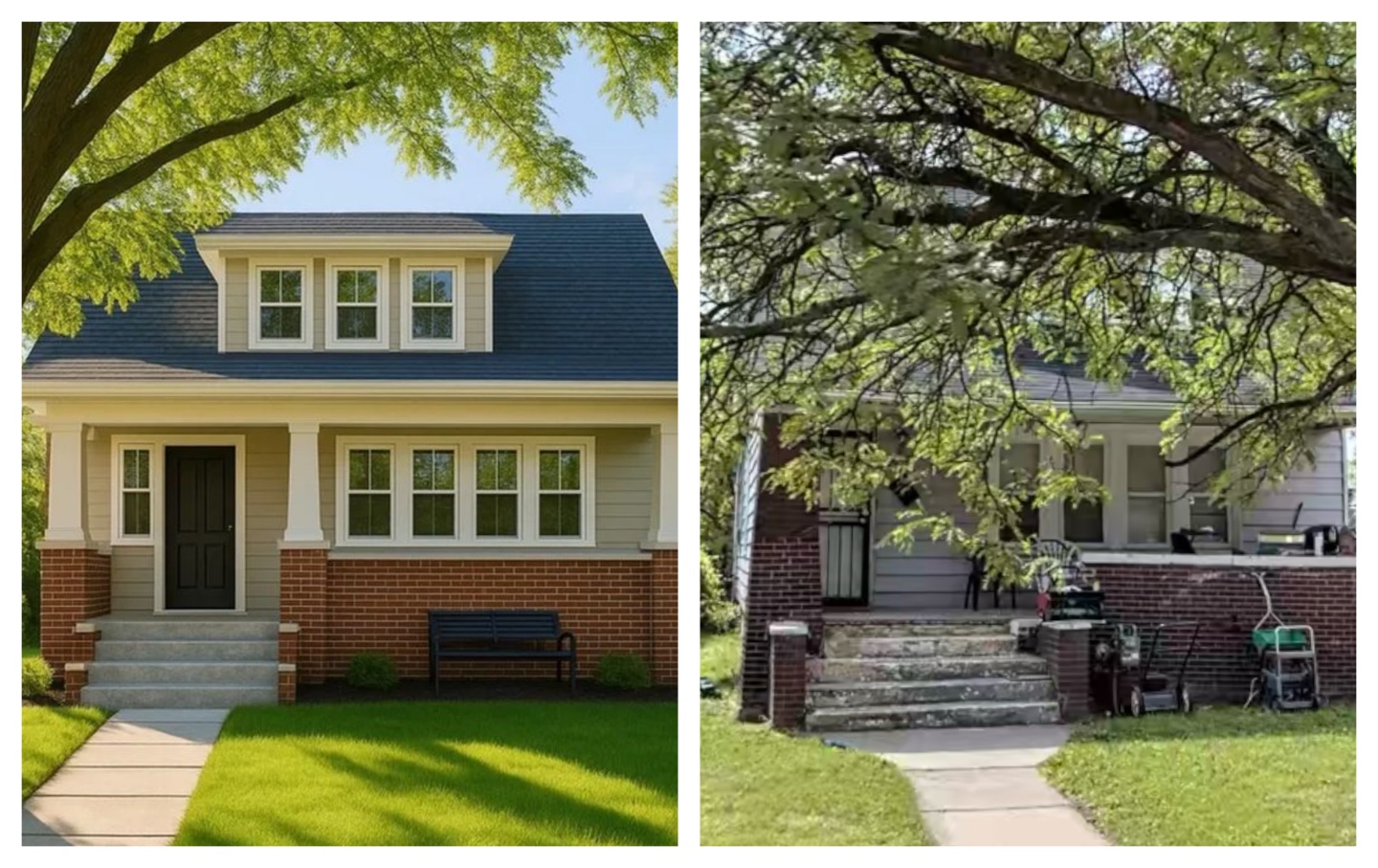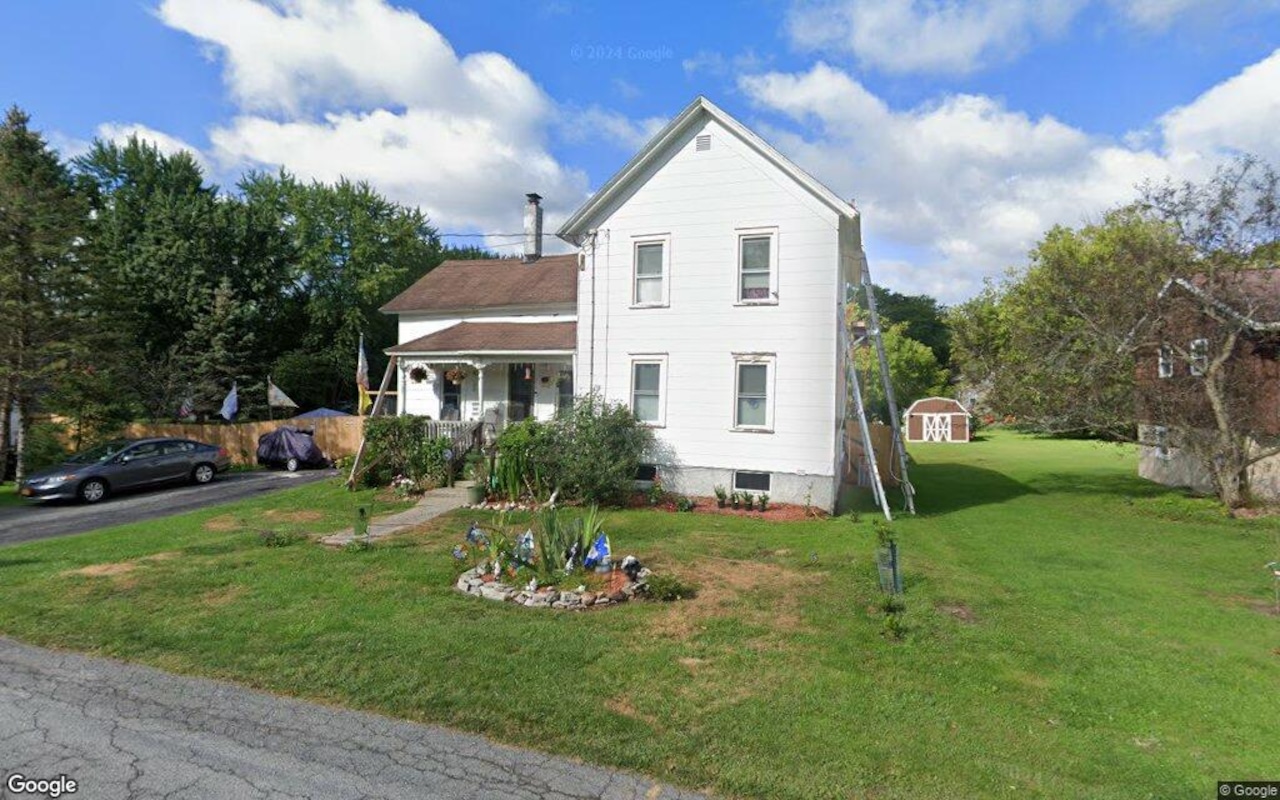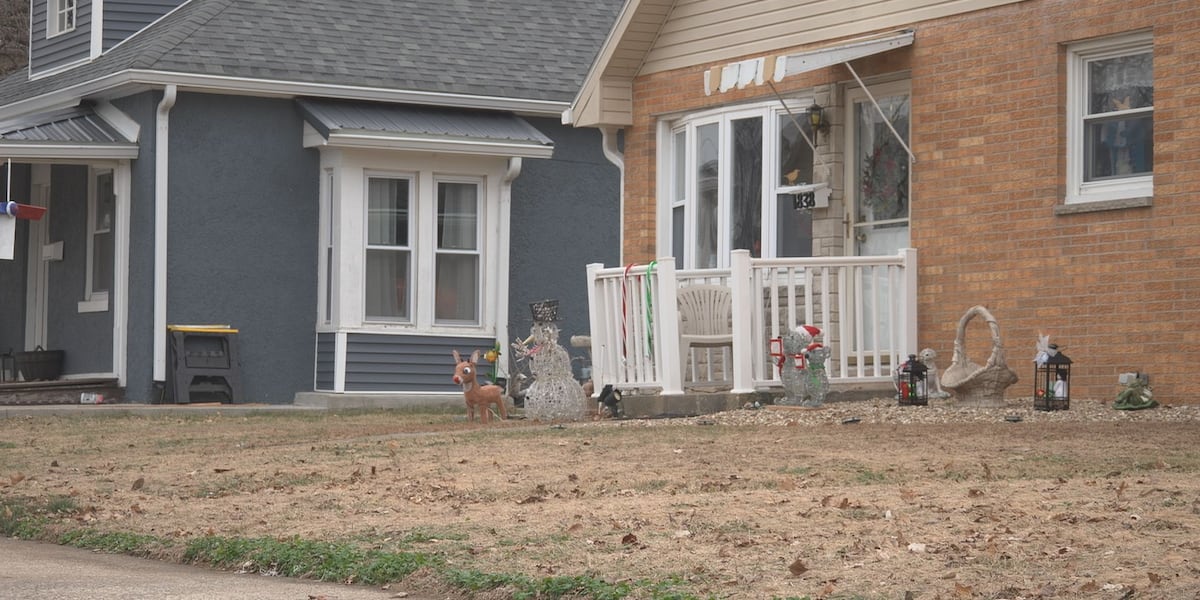N
ovember 6, 2025
**Your Dream Home May Be a Mirage**
Artificial intelligence has blurred the line between realistic photo enhancement and outright misrepresentation in real‑estate listings. A recent Zillow post in Detroit went viral not because of a flashy interior, but because the house itself looked ordinary—a warm‑painted craftsman with a dormer and porch. Yet Google Street View revealed that the listing’s photos had been heavily altered: the dormer was replaced with a gabled version, the exterior was freshly painted, and the yard appeared unnaturally green and flat, like a drawing. In reality, the property is a modest fixer‑upper with chipped paint, outdated aluminum windows, and general wear. The interior shots, too, were saturated with AI‑generated glow, creating a blend of truth and fabrication that left viewers uncertain about what was real.
AI tools such as virtualstagingai.app and AutoReel have entered the market to cut costs, mirroring trends in other creative fields where automation replaces skilled labor. Rather than eliminating photographers and stagers outright, AI accelerates a long‑standing practice: agents have long sought to reduce reliance on external contractors to boost margins. The shift toward artificiality began with Photoshop’s spread in the early 2000s, leading to over‑exposed, hyper‑blue skies and crisp edges. By the time Zillow and Redfin emerged, blatant image manipulation had become standard, driven by economic pressures.
Since Zillow’s launch in 2006, the internet has made it trivial to gauge a home’s value, a convenience that has also fueled predatory flipping, privacy loss, and the erosion of traditional appraisal roles. The Multiple Listing Service, once a closed network, opened up to aggregators, creating the endless feed of homes we see today. Zillow’s CEO Spencer Rascoff claimed this democratized the industry, but in practice it intensified competition, devaluing agents’ soft skills—writing, storytelling, and in‑person tours—while rewarding flashy presentations. When two comparable homes compete, the one with better imagery, drone footage, 3‑D renderings, or digital staging often wins, even if the enhancements are misleading.
The current wave of AI threatens to eliminate one of the last skilled professions in real estate: the photographer. High‑end shoots can cost hundreds or thousands of dollars, and photographers have adapted by using wide lenses and soft lighting to accommodate virtual furniture. However, if agents, homeowners, or landlords can simply take phone photos and have AI upscale them convincingly, the photographer’s niche may vanish. This shift would ripple through the industry, increasing agents’ workloads, undermining the staging market outside luxury segments, and raising legal questions about the line between enhancement and false advertising.
Today’s AI still leaves telltale signs—yellowish tints, odd lighting, swapped architectural elements—that allow discerning viewers to spot fakes. Yet these imperfections may not hold forever. As AI improves, the risk grows that no online image can be trusted. While the real‑estate sector has a history of deception, widespread AI‑generated listings could become the new norm, forcing a reevaluation of how we buy and sell homes.
If the aggregator’s image feed becomes unreliable, offline, in‑person interactions may regain value. The current digital model has distorted our relationship with housing, turning homes into data points rather than lived spaces. A return to personal, tactile transactions could restore authenticity and reshape market dynamics.
Brands like Aerie are already positioning themselves against AI, using human authenticity as a marketing hook. In the same way, a house is more than a photograph; it is a physical, lived environment. The true purpose of a home—providing shelter and a place for human experience—outweighs any online listing or image. That reality will always matter more than a number on a website.
**Kate Wagner**
Kate Wagner is The Nation’s architecture critic and a journalist based in Chicago and Ljubljana, Slovenia.













